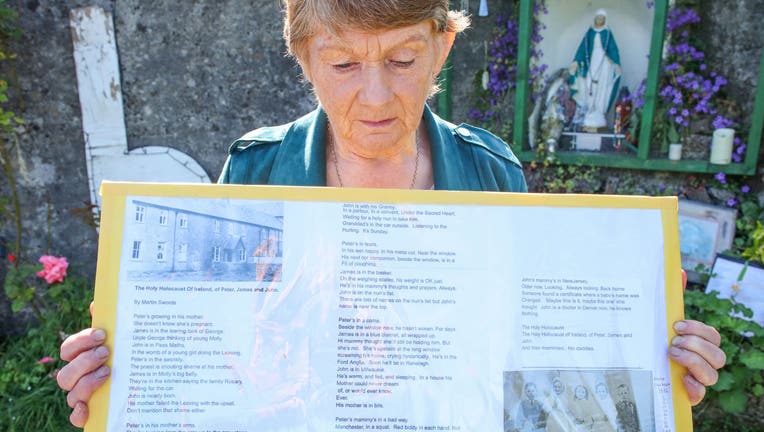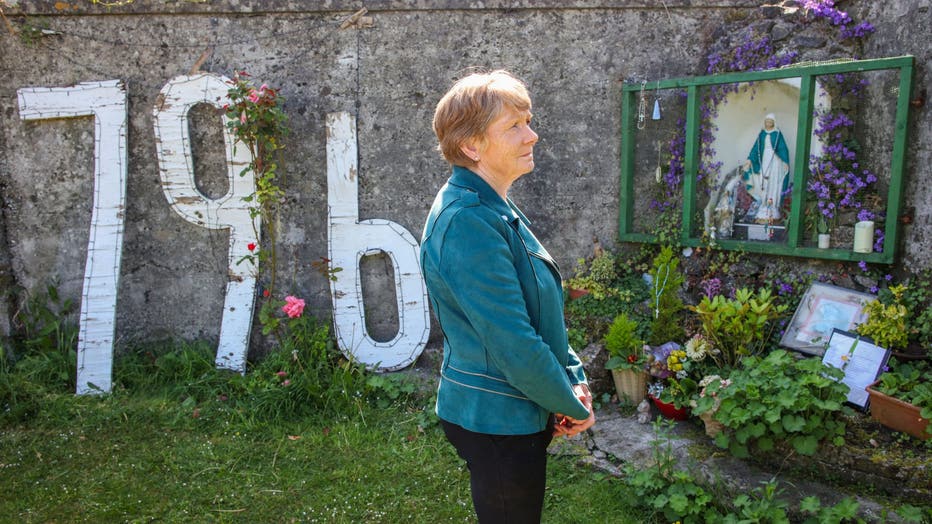Historian who found Ireland's mass grave of babies was scorned in hometown

Historian Catherine Corless poses on the site of the former St Mary's Mother and Baby Home, in Tuam, in the outskirts of Galway, western Ireland, a site believed to be containing a mass grave of children and mothers, on May 20, 2025. (Photo by PAUL F
Catherine Corless, the historian who found the gravesite of nearly 800 babies and children beneath an Irish home for unwed mothers, has dedicated more than 10 years of her life to this tragic discovery.
But in her hometown of Tuam, County Galway, and even abroad, she was ridiculed for her life’s work.
In an interview with The Irish Times, Corless recalled how people would cross the street to avoid her and complain to her relatives in supermarkets. Others called her "obsessive" and "delusional."
"You’re about as credible as Santa Claus. You’re a disgrace," a man wrote to Corless on June 15. "I hope those nuns bring you to court."
This week, Corless was vindicated when crews finally began to excavate the septic tank where the babies’ bodies were buried. The unwed mothers home where the bodies were found was run by nuns.
How did she find them?
The backstory:
In 2014, Corless tracked down death certificates for nearly 800 children who died at the Bon Secours Mother and Baby Home in Tuam between the 1920s and 1961 — but could only find a burial record for one child. After extensive research, she believed the remains were buried somewhere on the property.
The home, which was run by an order of Catholic nuns and closed in 1961, was one of many such institutions that housed tens of thousands of orphans and unmarried pregnant women who were forced to give up their children throughout much of the 20th century.

Historian Catherine Corless poses on the site of the former St Mary's Mother and Baby Home, in Tuam, in the outskirts of Galway, western Ireland, a site believed to be containing a mass grave of children and mothers, on May 20, 2025. (Photo by PAUL F
In 2017, investigators confirmed Corless later found a mass grave containing the remains of babies and young children in an underground sewage structure on the grounds of the home. DNA analysis found that the ages of the dead ranged from 35 weeks gestation to 3 years.
All told, about 9,000 children died in 18 different unwed mother homes in Ireland. Most died from natural causes like gastroenteritis, whooping cough, tuberculosis and diphtheria, but at the Bon Secours home, those 800 deaths were never recorded – or even acknowledged.
What they're saying:
"All those lovely little children and babies, that's the one thing that drove me. That's all that was in my mind, these babies in a sewage system, they have to come out," she told The Irish Times.
"It's just beginning to dawn on me now," Corless continued. "It has taken awhile to sink in."
In 2021, the Irish government issued a formal apology for the unrecorded deaths in mother-and-baby homes.
What's next:
The excavation under the former Bon Secours home could take up to two years, officials said.
Daniel MacSweeney, who leads the exhumation of the babies' remains at Tuam, said that survivors and family members will have an opportunity to view the works in coming weeks.
The Source: This report includes information from The Irish Times, The Associated Press and previous LiveNow from FOX reporting. FOX's Chris Williams contributed.

